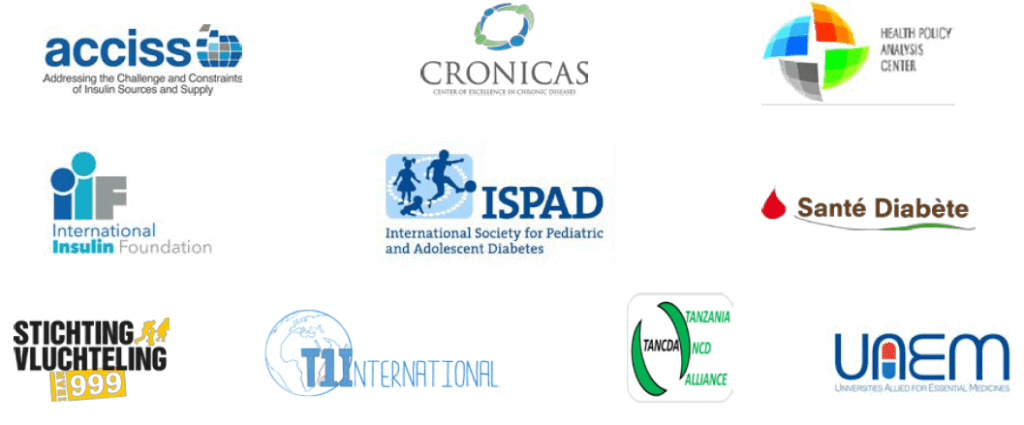Letter | 26 May 2020 | Download PDF
We have written to the Director-General of the World Health Organization (WHO) on the impact of COVID-19 on access to medicines for non-communicable diseases, particularly insulin, now and after the crisis ends.
Supported by a group of nine other organisations working to improve the health outcomes of people living with diabetes, the letter identifies four key challenges and gives recommendations to mitigate the problem.
Read the full letter, below:
Dear Director-General,
As a group of organisations dedicated to improving health outcomes for people living with diabetes, we would first and foremost like to acknowledge you and the staff of the World Health Organization (WHO) for your work in the response to COVID-19. This is an unprecedented situation putting considerable strain on individuals, populations, health systems and the global health community. WHO plays a key leadership role to consolidate the solidarity that is needed to address this common global challenge.
The COVID-19 pandemic brings challenges to the many millions of the people around the world living with non-communicable diseases (NCDs), including those with diabetes who are particularly vulnerable to infection. We ask that, while urgent attention is required to turn the tide of coronavirus, the needs of other diseases are not left behind, or we risk exchanging one crisis for another.
As you are aware, even under normal circumstances, the availability and affordability of medicines for NCDs, including insulin, in many low- and middle-income countries is poor. Given the current crisis, and in our experiences concerning access to insulin, we have identified four specific challenges;
Firstly, global trade has been severely disrupted and is affecting supplies of all goods, including medicines such as insulin. For some countries, external resources will be necessary to ensure continued supply of medicines and essential medical equipment. We know many United Nations organisations and other actors are mobilising in this regard, but within this response, WHO should track and share information on the supply of NCD medications, including insulin, to best guide countries on procurement.
Secondly, once medicines are in-country, the challenge remains getting them to those in need. Disruptions to health systems and other societal restrictions, such as home confinement, curfew measures and fear, will only add to this challenge. This component is just as important as ensuring that medicines are available in the country. WHO should support countries to ensure continuity of the supply chain of NCD medications, including insulin, to those most in need.
Thirdly, an ongoing commitment to the pre-qualification of biosimilar products, particularly in relation to access to insulin and cancer care. WHO’s ongoing support of this process is central to expanding access of these life-saving medicines. For insulin, we welcome the WHO’s continued support around the issue. We hope that the WHO meeting to discuss access to insulin and specifically the pilot of human insulin in the Prequalification Programme, which was cancelled in March due to travel restrictions, will be rescheduled to a later time in 2020.
Finally, looking forward, the financial impact of COVID-19 on NCDs cannot be neglected in national or donor budgets. Health issues will remain, we hope, funded at least to the same extent as in the past. However, NCDs have been chronically under-financed and we fear that without support of these programmes for screening, diagnosis, treatment and care, people with NCDs will continue to be left behind and, in the case of diabetes, remain more highly susceptible to infectious diseases such as tuberculosis and COVID-19. This is a large threat to Universal Health Coverage (UHC), which will be needed more than ever in a post-COVID-19 world where many will face severe financial hardship for the foreseeable future.
Your dedication to UHC and its integration into WHO reforms and “triple billion” targets require that, throughout these challenging times and beyond, NCDs and access to medicines for these conditions, especially insulin, remains firmly on the global health agenda.
We thank you for your attention and remain allied with WHO now and in the future to address the wide range of issues impacting access to medicines and care for people living with NCDs.
Yours sincerely,
Tim Reed, Executive Director, Health Action International
This letter is supported by:
